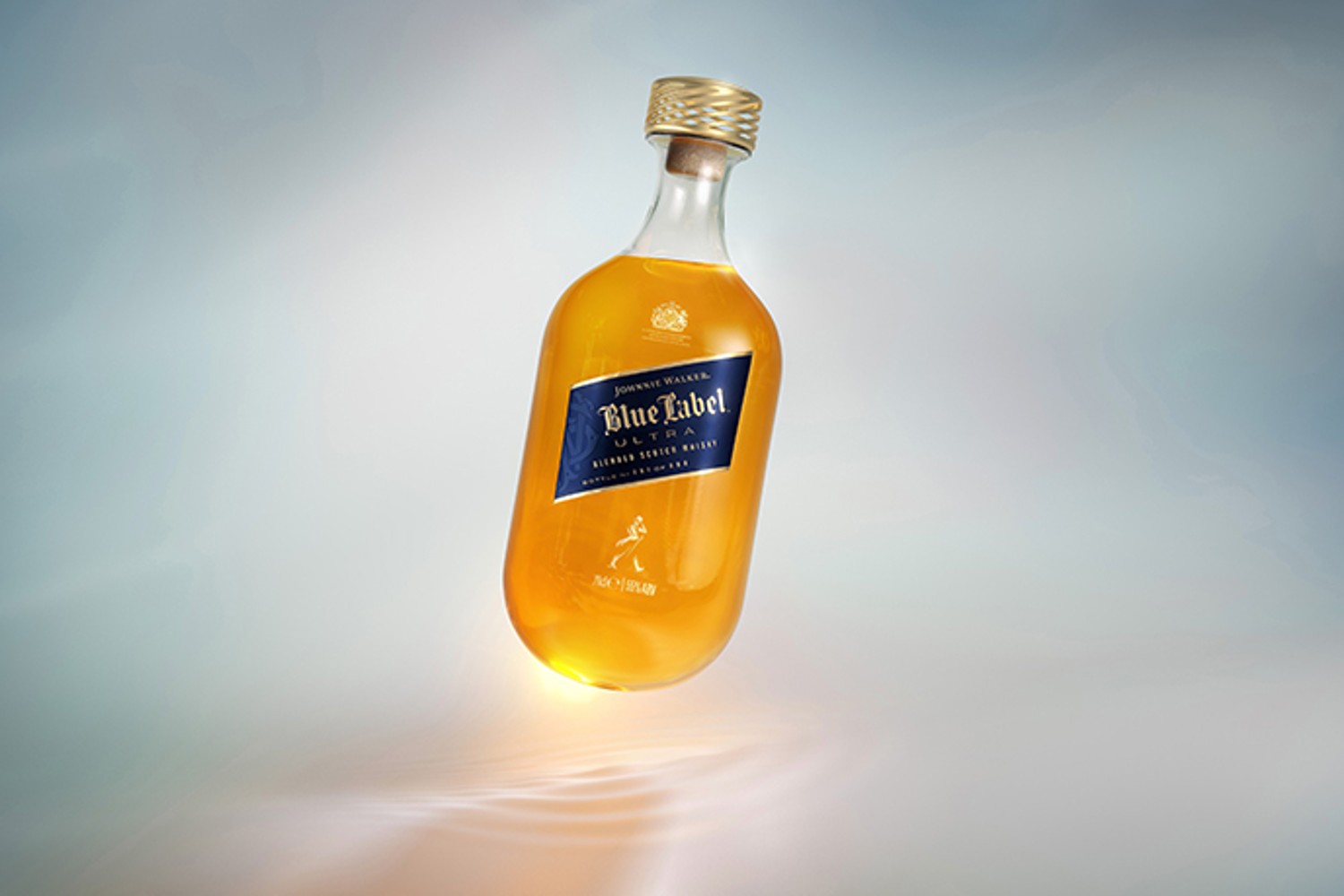Consider the glass bottle. While it might seem ubiquitous — in part because it is — creating one is a more delicate balance than you might think. How do you find the right middle ground between a bottle that’s durable enough to withstand being transported while also being light enough that picking it up doesn’t feel like a workout? There are also environmental considerations to consider, both in terms of the materials used and the impact of a bottle’s weight on carbon emissions.
All of those factors help explain why Johnnie Walker has been experimenting with creating a lighter glass bottle for its whisky. At this year’s London Design Festival, the distillery unveiled something that could foreshadow a new era of whisky packaging: the lightest glass whisky bottle ever made. The 70cl bottle weighs just 180 grams — or just below 0.4 pounds, depending on how you’re keeping track. It’s the product of five years of experimentation to find the ideal balance between weight and strength.
Johnnie Walker’s announcement of this bottle wasn’t all about design, either — this lightweight bottle also comes with a limited edition blend of spirits in an edition of 888. Master Blender Dr. Emma Walker used a combination of spirits from Oban, Brora and Royal Lochnagar as well as several now-shuttered distilleries. Next year, a limited number of these bottles will go on sale, with a suggested price of £1,000.00 ($1,310.00). Its name? Johnnie Walker Blue Label Ultra.
An Enlightening Q&A With Johnnie Walker’s First Female Master Blender
Dr. Emma Walker on breaking barriers, bringing innovation to Scotch and why blood orange soda is a perfect highball mixerApparently the process used to make this bottle doesn’t scale up to make it suitable for larger distribution, though the announcement does declare that the process used to make it “is already being applied to lightweighting projects across the Diageo portfolio.” There’s also an aspect of this design that adds notes of open-source into the mix: Diageo is providing royalty-free access to the bottle patent.
“Rather than hold this new knowledge close to our chest, we’re excited to be offering a royalty-free licence to our granted UK patent to the world,” said Diageo’s Global Design Director, Jeremy Lindley, in a statement. “We hope that our discoveries will have a positive impact within the wider industry and help discover new possibilities for lighter, lower carbon packaging alternatives.”
Join America's Fastest Growing Spirits Newsletter THE SPILL. Unlock all the reviews, recipes and revelry — and get 15% off award-winning La Tierra de Acre Mezcal.
